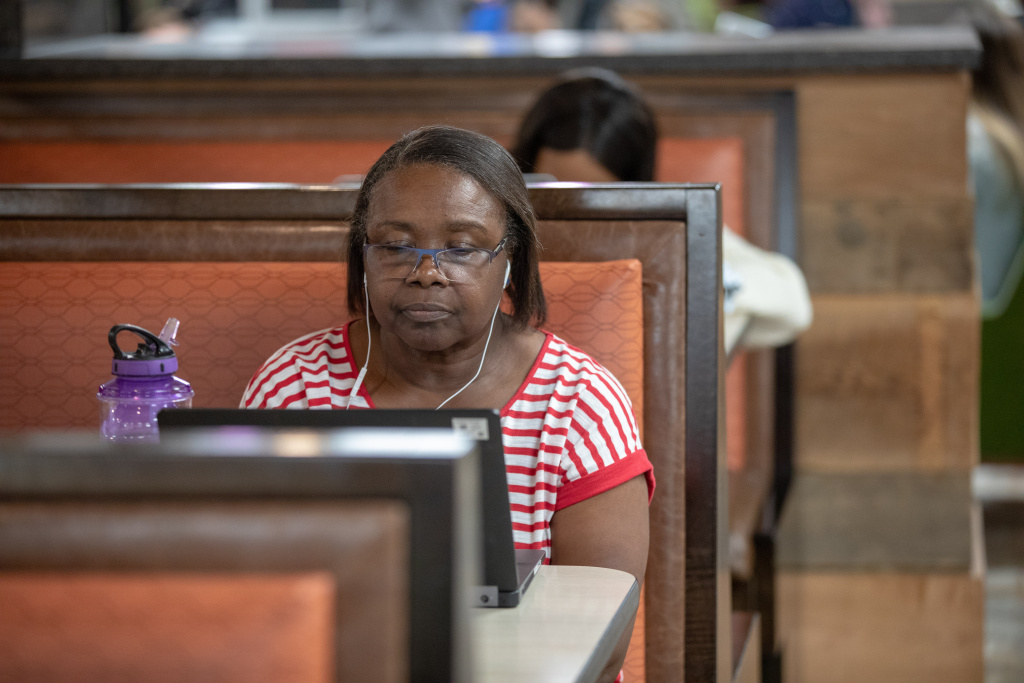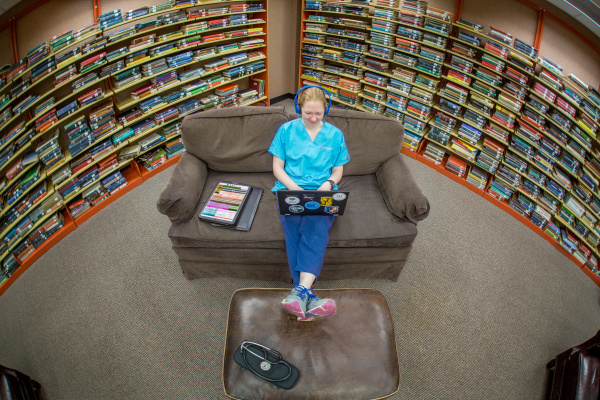For years, the Center for Distance Learning—better known as BJU Online—only offered dual enrollment credits to high school students and courses to undergraduates. But BJU realized there was a bigger population to reach—post-traditional students.
The University created the School for Continuing, Online and Professional Education (SCOPE) to serve individuals who desire to boost their education or complete degrees.
Different Audience
Higher education literature has highlighted the demand for programs like SCOPE for more than a decade.
“We’re actually 12 years behind on this, so we are trying to make up for that,” said Dr. Beverly Cormican, vice provost for strategic initiatives and dean of SCOPE. “But we have such good quality education and our distinctive is our biblical worldview.”
Starting SCOPE was an opportunity for the University to leverage its expertise in multiple content areas and reach an underserved population. The bulk of higher education today is non-traditional students, and BJU is working to equip them. Cormican said that SCOPE’s goal is to extend the mission of the University to a wider audience by better preparing adult learners for their ministries and careers.
Online Education
Since the start of SCOPE, seven graduate degree programs were added to the platform, including biblical counseling, education leadership and master of divinity. A master of sport administration & coaching is in development.
“We’re trying to reach lots of different audiences with our online tools,” said Cormican. She said that the program is not limited to the web. SCOPE has access to 60 classrooms at the University Center of Greenville in McAlister Square, where university or adjunct professors can teach. “We’re physically at the University Center,” said Cormican. “While everything is online, it visually signals to Greenville and to the community that we are one of their options for their education.”
See also: BJU Expands Continuing Education Service to Community
Degree Completion Programs
Recently, SCOPE launched its collection of completion programs for people in the workforce. Through the professional studies program, Cormican and her team “are trying to reach that group and give them a path to completion in different concentrations.”
The staff checks the student’s transcript, analyzes the credits they earned and creates one or two concentration paths based on the fields previously studied. Concentrations—which vary from business to Christian ministry to educational studies—combine with the program’s major Core to teach communication, presentation skills and biblical worldview.
In addition, the RN to BSN completion program targets professionals without a bachelor’s degree. “We’re targeting that audience because nursing is probably the most in-demand program in the University,” said Cormican. “We’re just trying to reach another audience.”
See also: Online RN to BSN Program Responds to Growing Need
Workforce Development
While various programs are live on the online platform, many SCOPE courses are still in development. Cormican and her team are working on credit and non-credit certificate programs with a vocational focus. The programs will target those in leadership roles they weren’t previously trained for. Courses that provide certifications such as project management, health care ethics and leadership are in the works.
The SCOPE team is also working on a Directors Institute for early childhood education, which will aim at directors of childcare or early education centers. Cormican believes these programs will be “very practical. They address workforce needs in Greenville and the Upstate.”
Cormican, who was a post-traditional learner herself, understands the prospective students’ worries and fears. But she knows that the SCOPE faculty, staff and design team will continue to grow and meet the educational needs of post-traditional learners.








